Abstract
OBJECTIVE: To examine the effect of post-hospital Medicare home health and informal care on the functional status of 755 Medicare beneficiaries six weeks after hospital discharge for treatment of stroke, chronic obstructive pulmonary disease (COPD), congestive heart failure (CHF), hip procedures, and hip fractures. STUDY SETTING/DATA SOURCES: Consecutive patients enrolled in the study between March 1988 and February 1989 prior to discharge from one of 52 hospitals in three cities. Data sources included patient interviews, medical records, and the Medicare Automated Data Retrieval System (MADRS). ANALYSIS: The effect of the two types of care on patients' subsequent functional status was estimated using a selectivity corrected least squares regression of functional status six weeks post-discharge on hours of informal care, Medicare home health expenditures, and patient prior functional and cognitive status. DATA COLLECTION/EXTRACTION METHODS: Patients were interviewed before hospital discharge and six weeks later. The patient's primary caregiver was interviewed by telephone six weeks post-discharge. Patient data included demographic characteristics, illness severity, cognitive status, functional status at discharge and six weeks later, post-discharge expenditures for Medicare home health, and hours of informal care. PRINCIPAL FINDINGS: More informal care after discharge was associated with greater patient functional impairment six weeks later. The amount of Medicare home health that patients used had a nonsignificant effect on subsequent functional status. CONCLUSIONS: Post-acute home care may maintain the patient at home and compensate for functional limitations, rather than promote restoration of function. Future studies are needed to examine the effects of specific types of care, services, and providers as well as factors that mediate their effects on patient functional outcomes.
Full text
PDF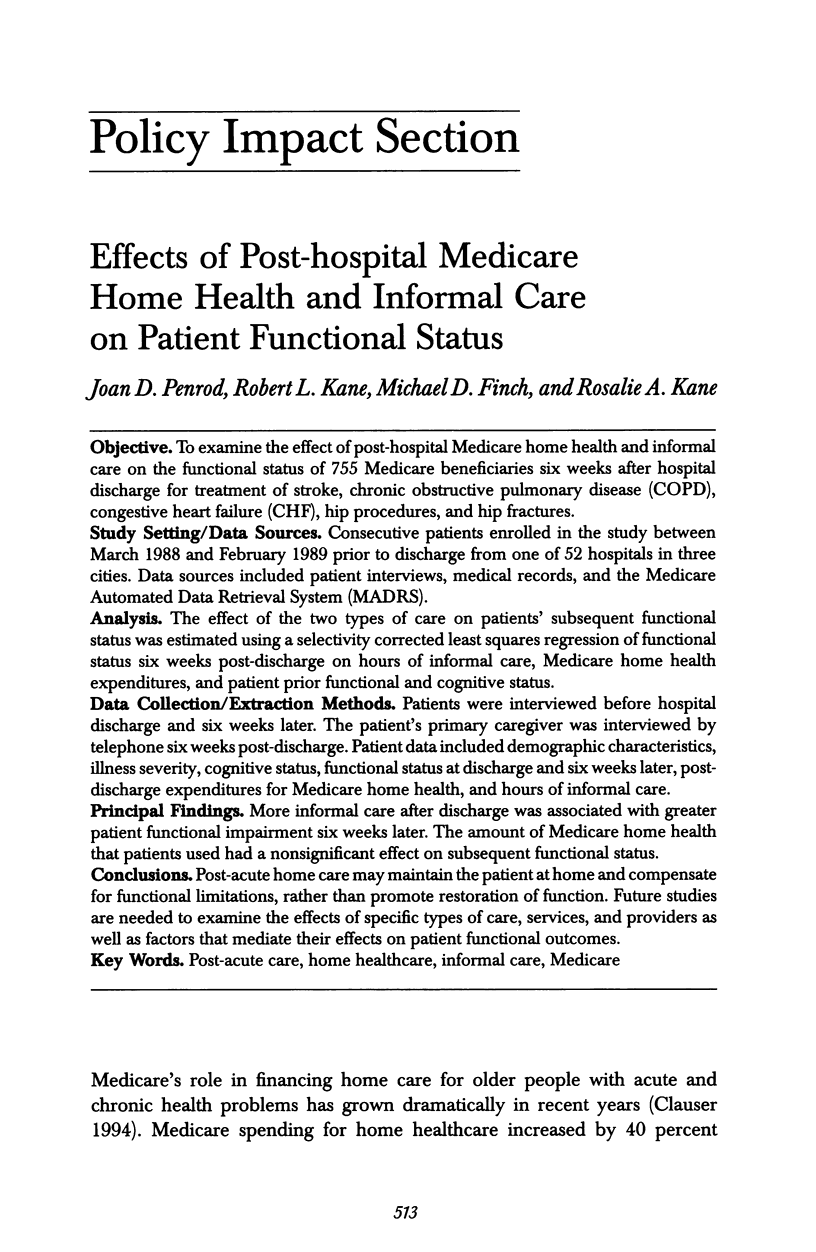
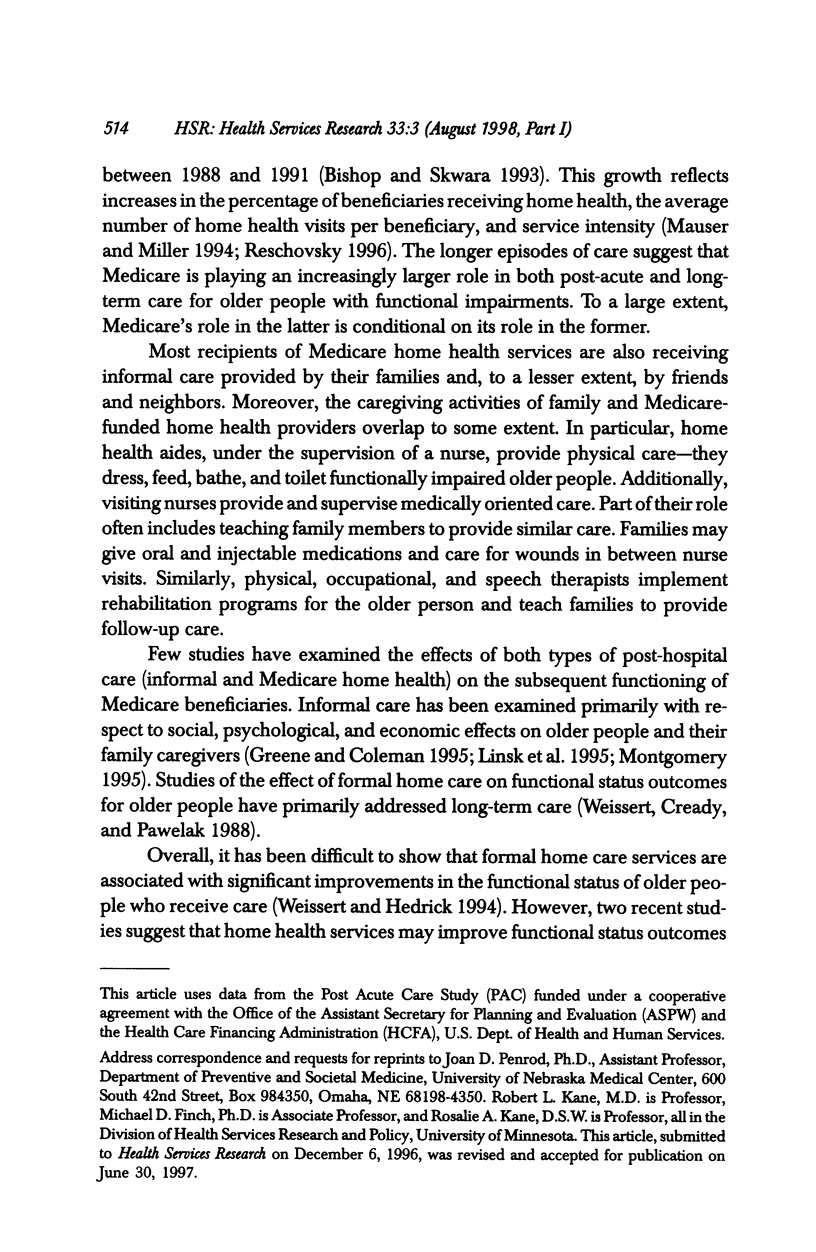
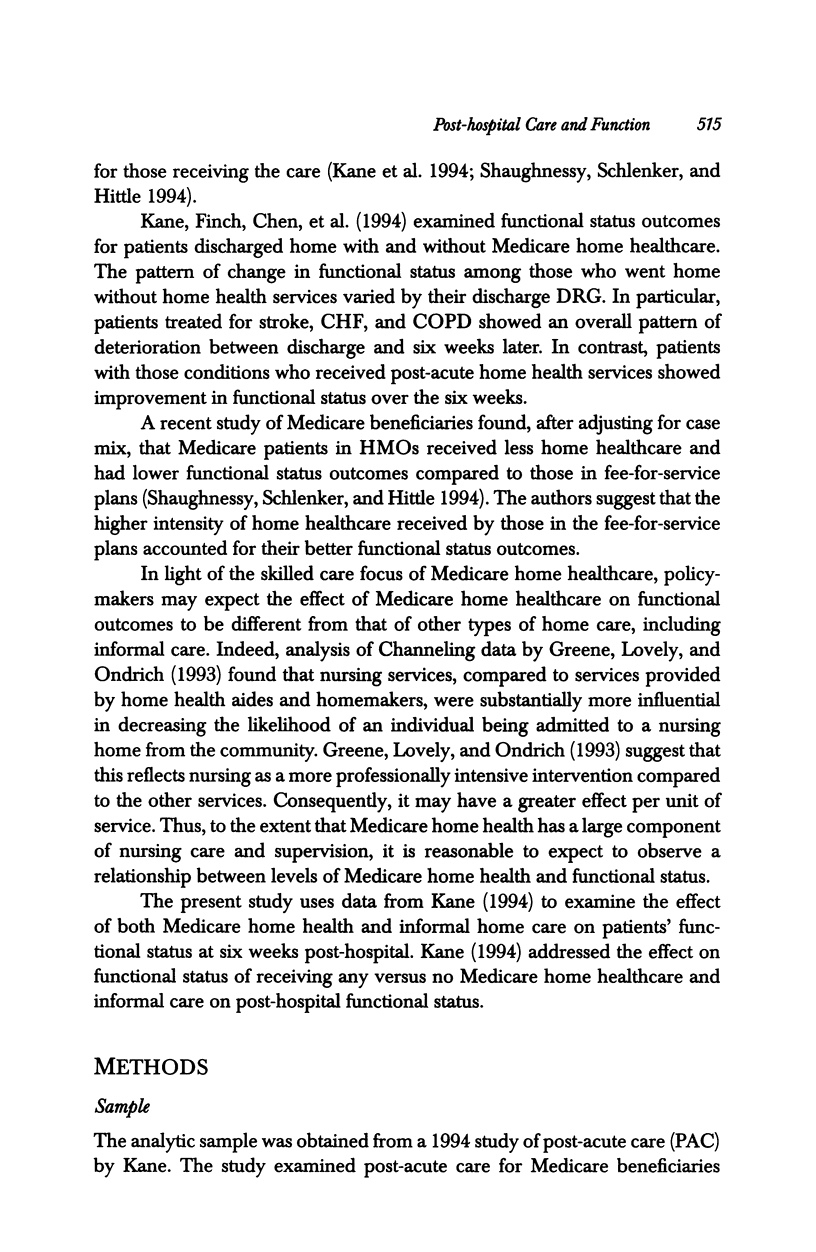
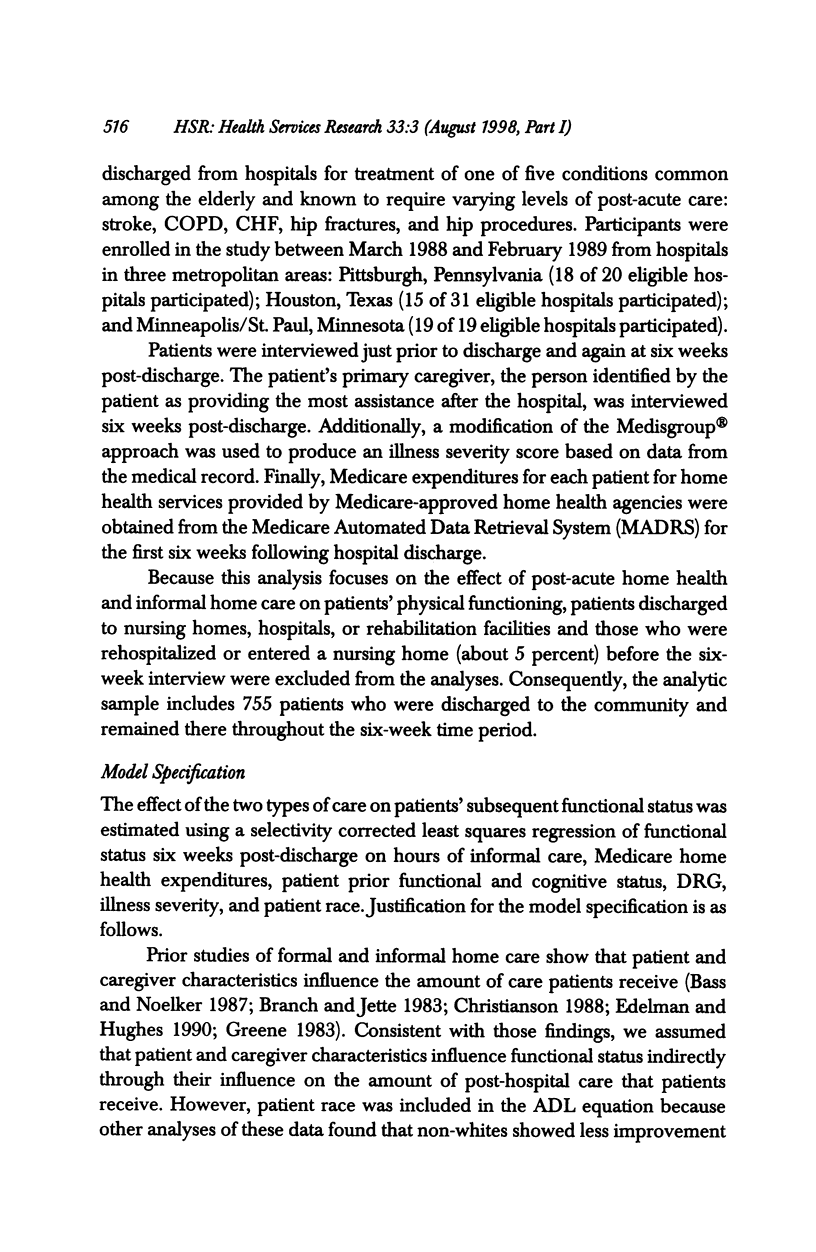
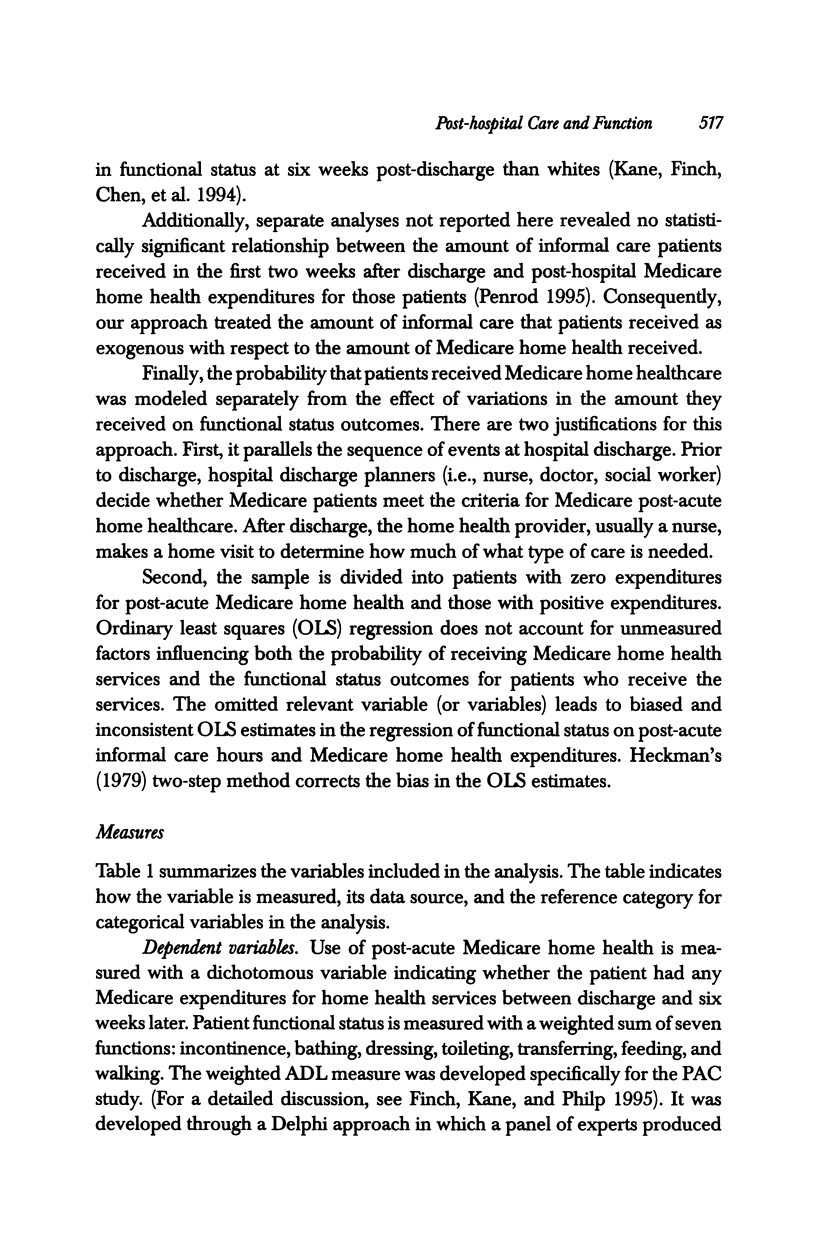
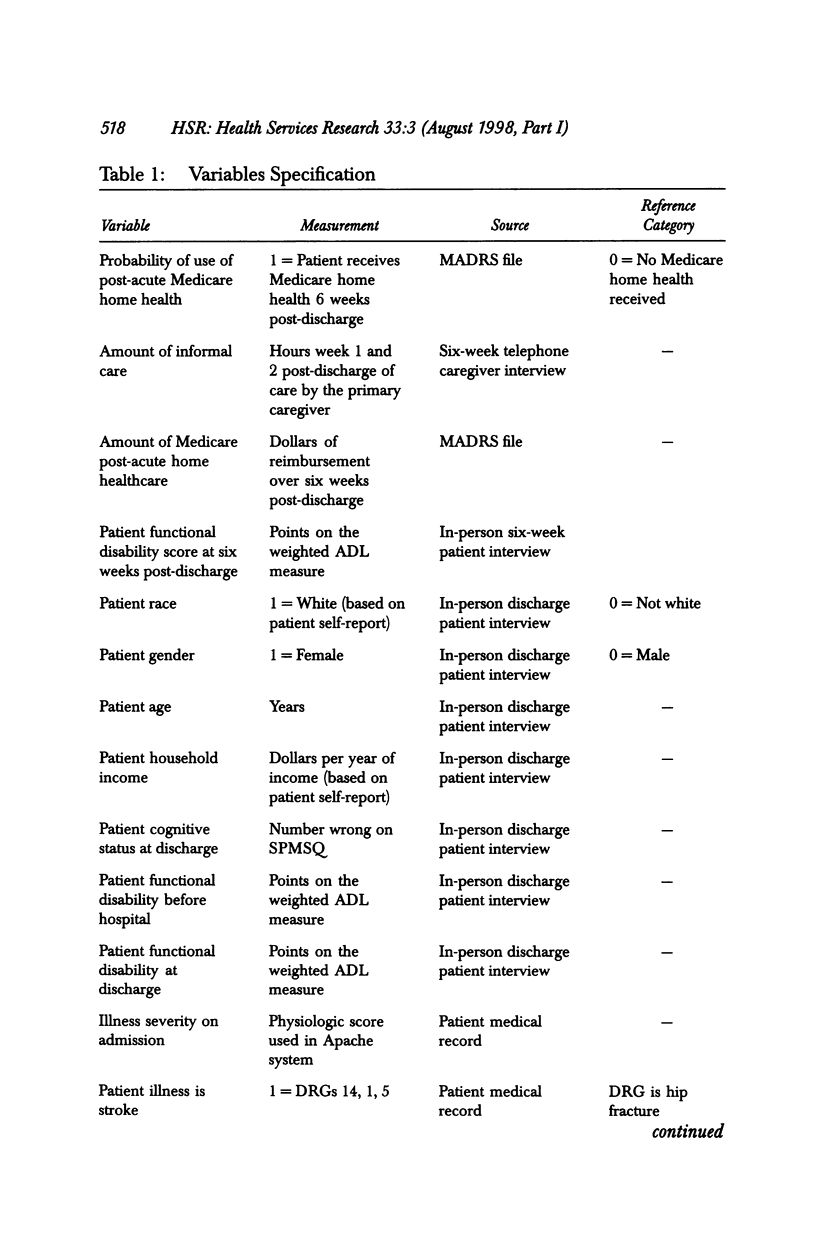
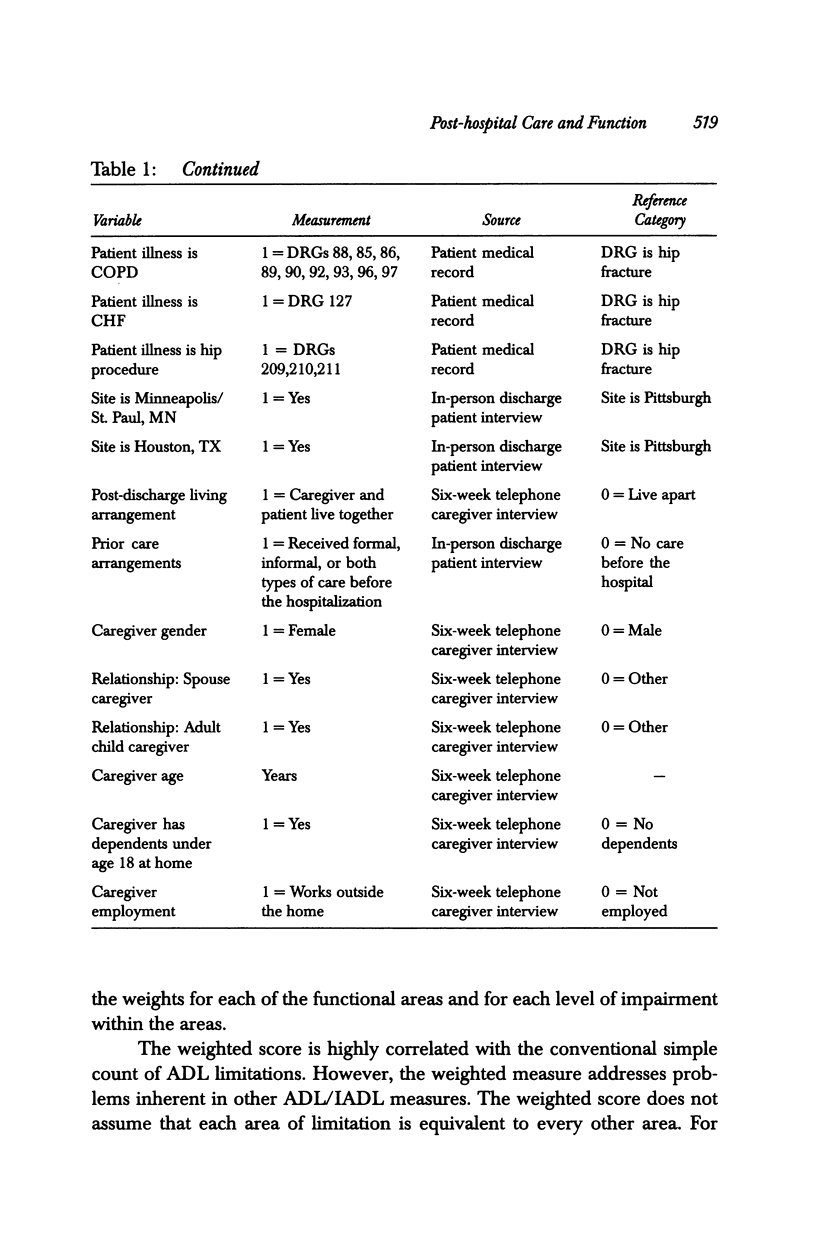
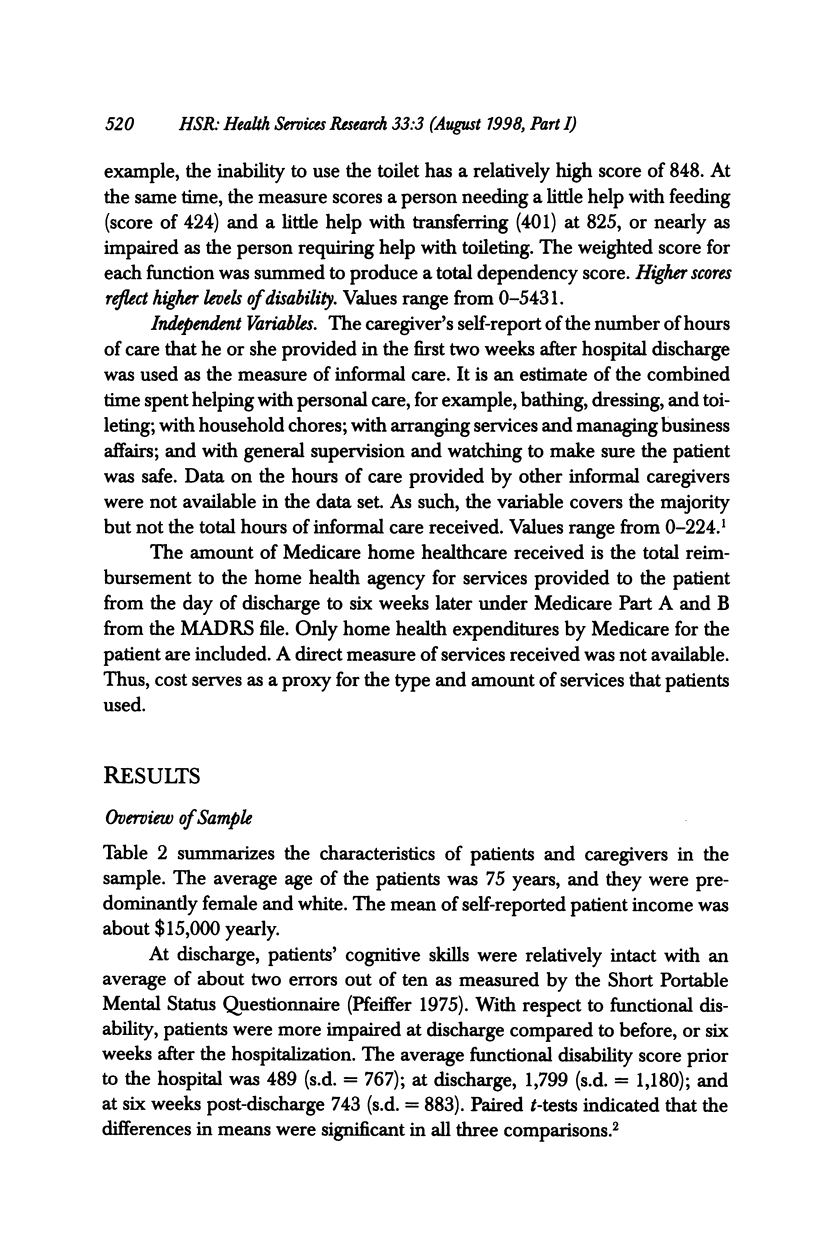
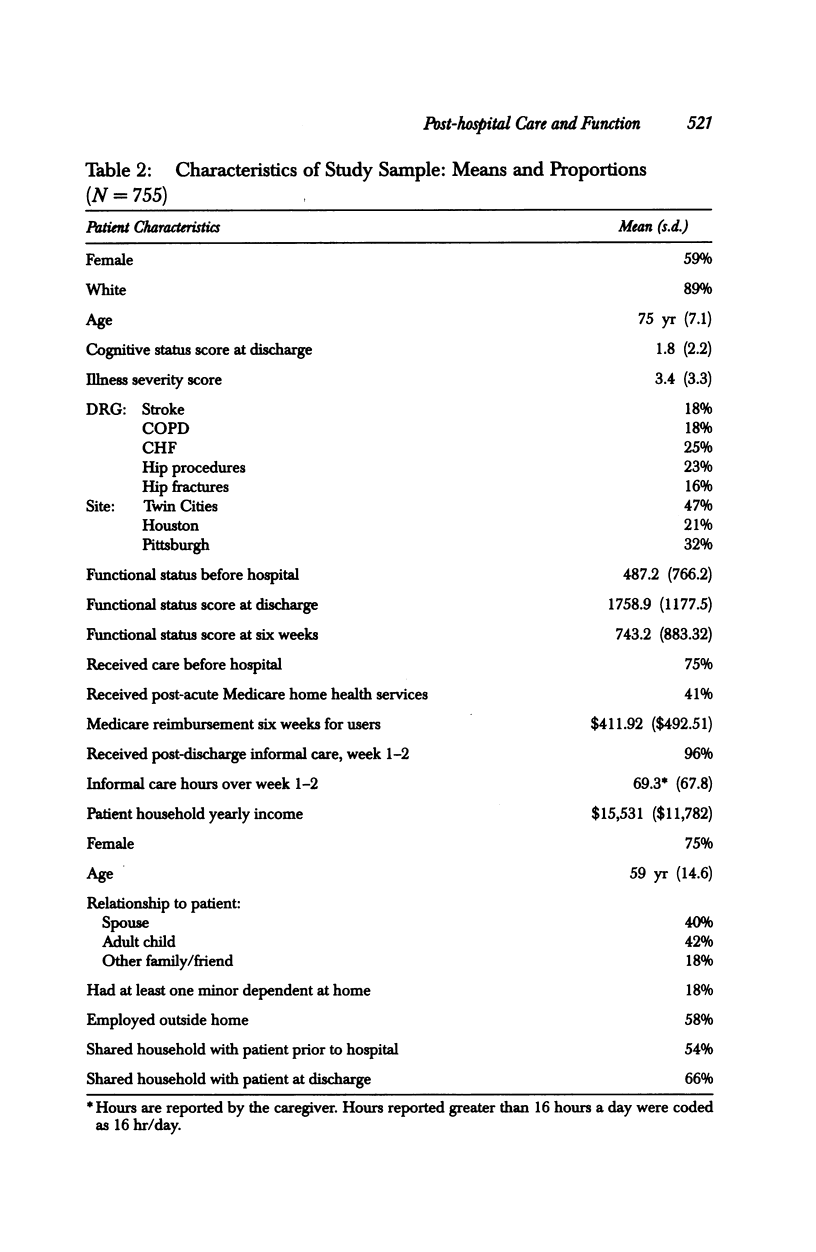
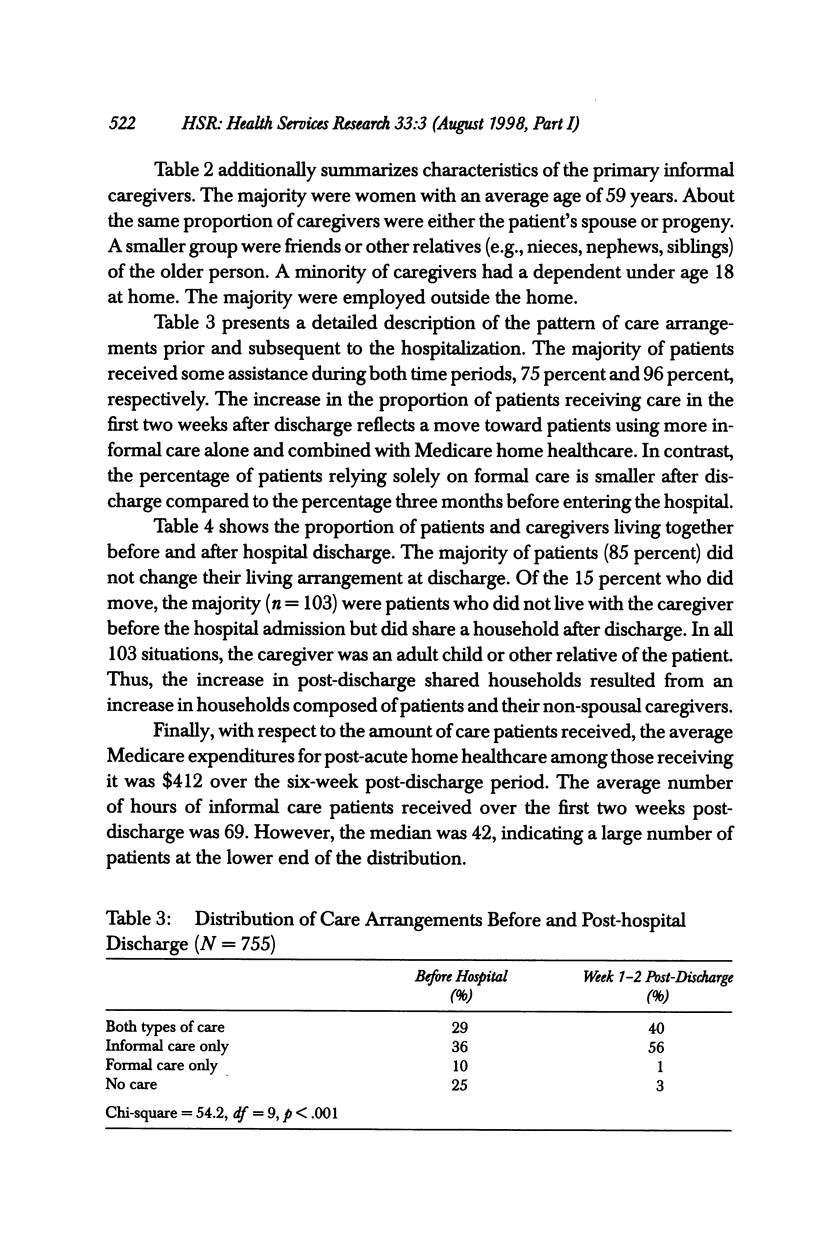
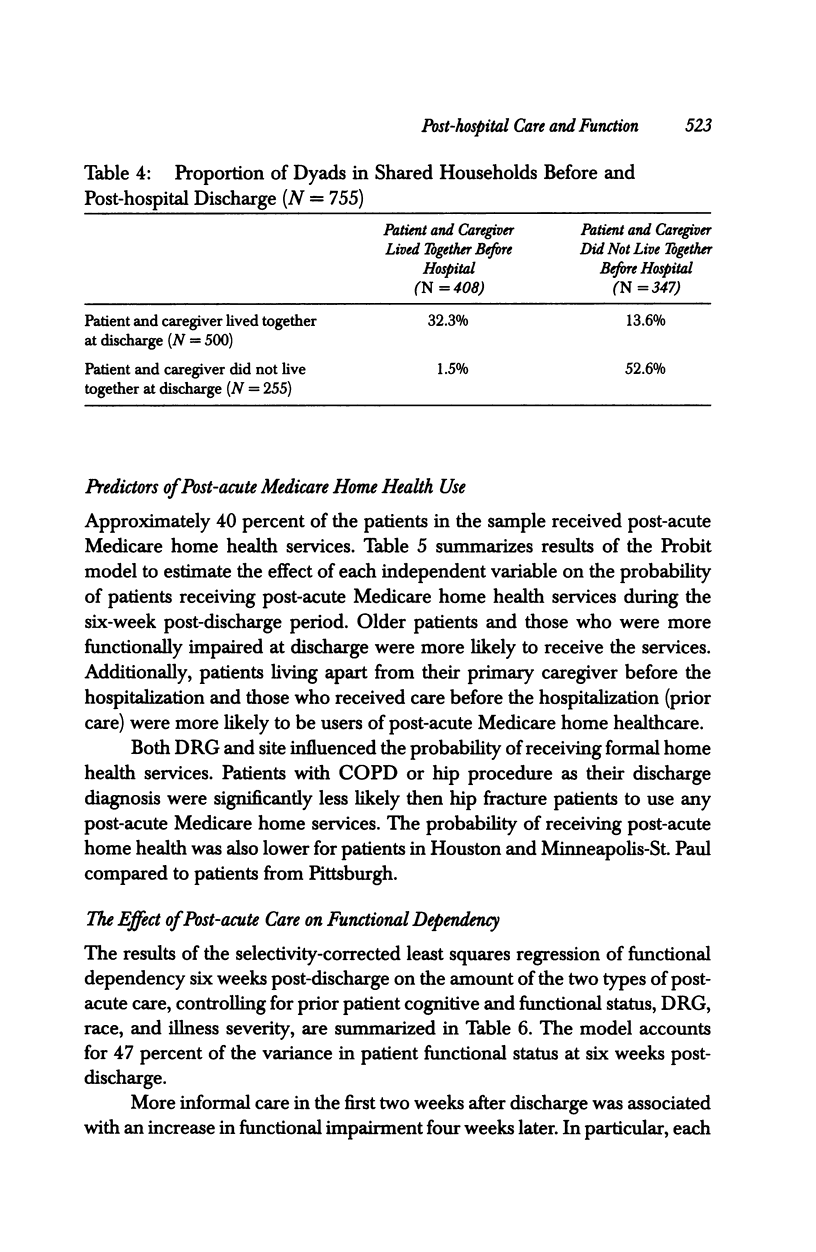
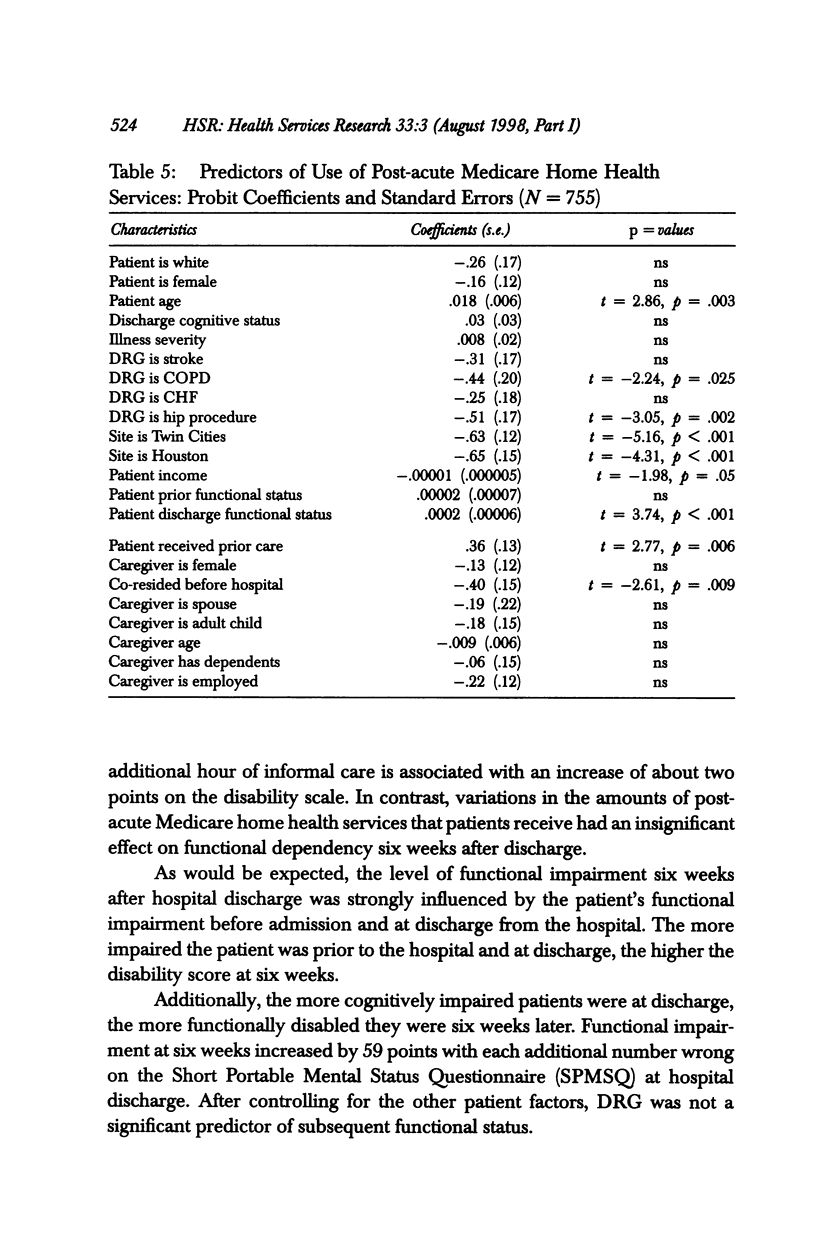
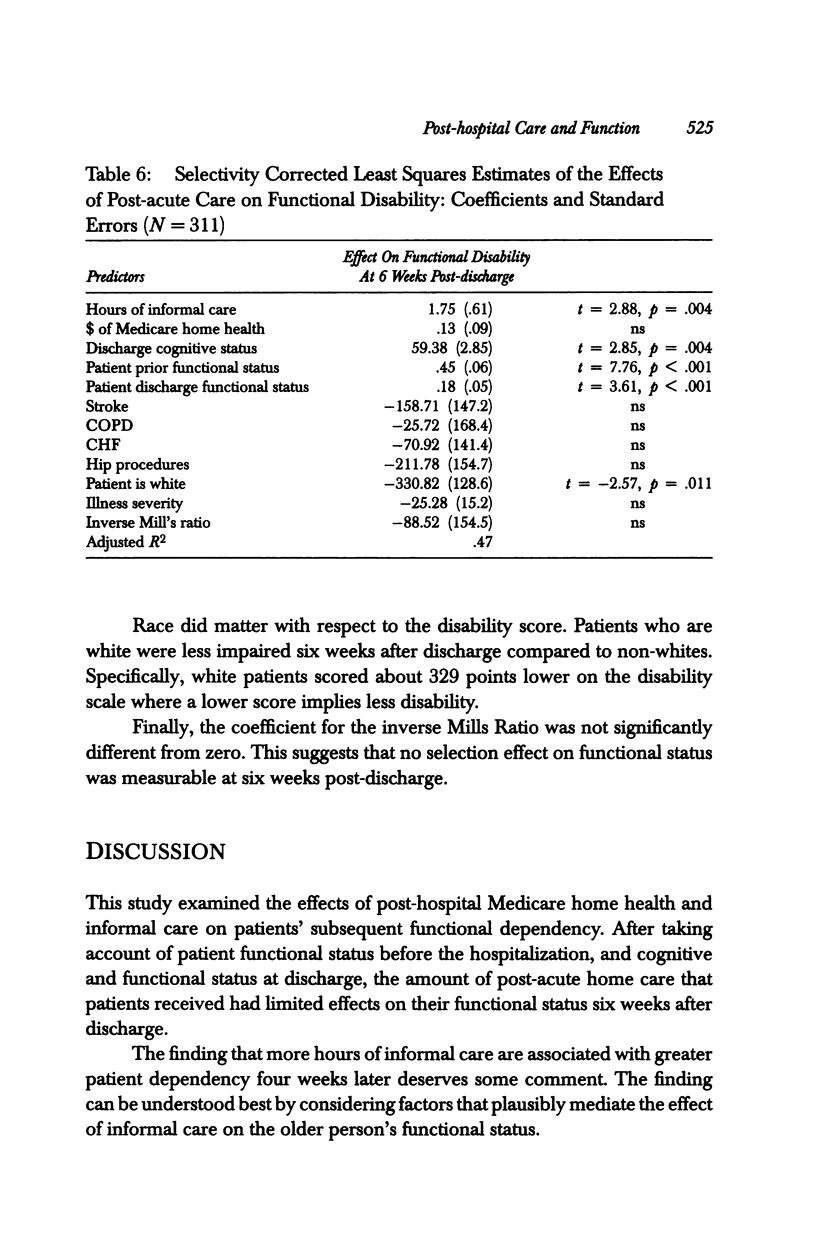
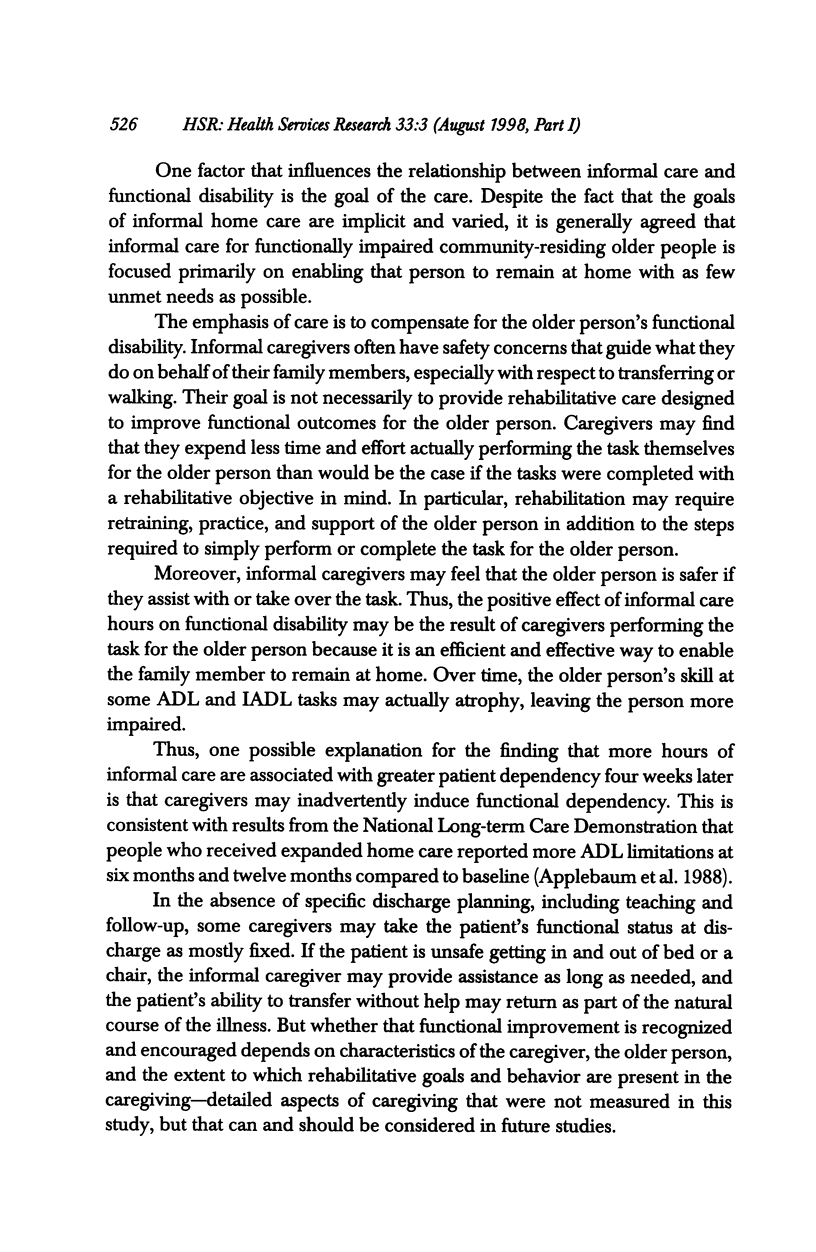
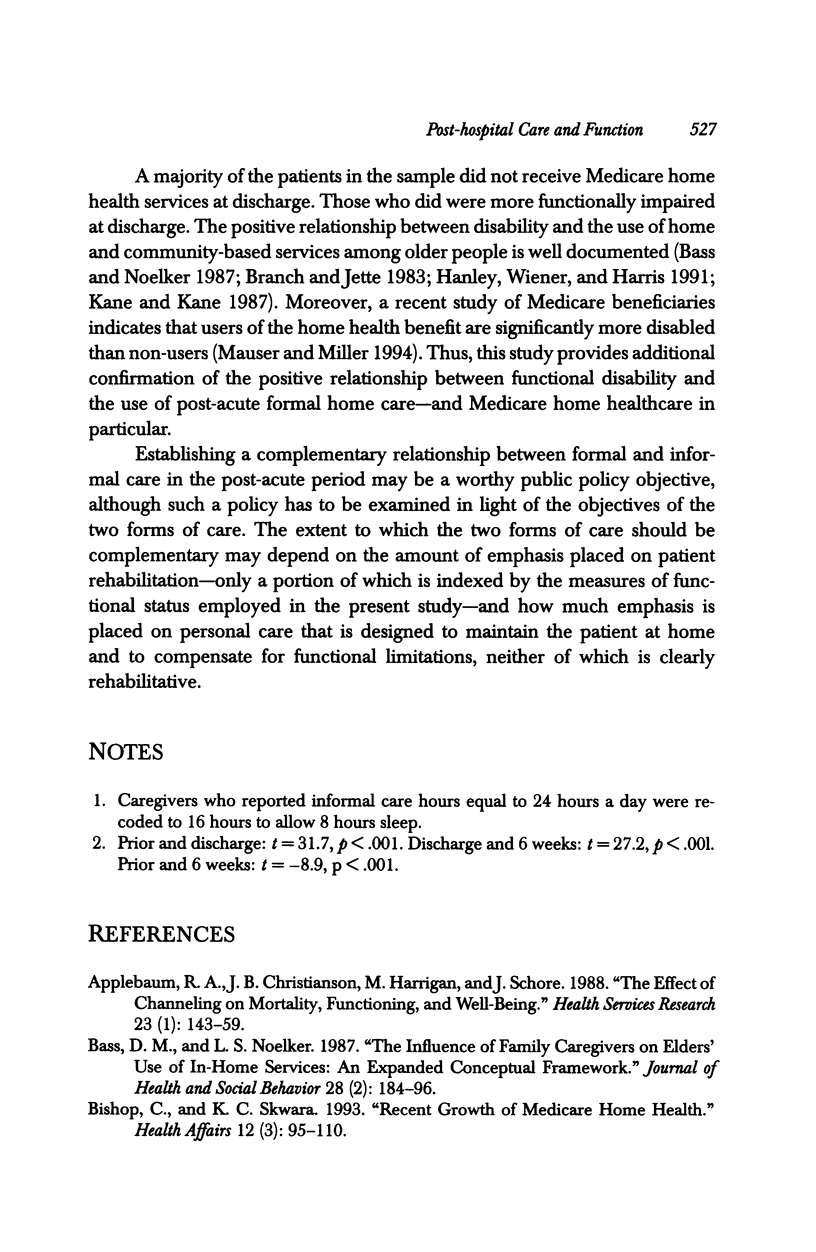
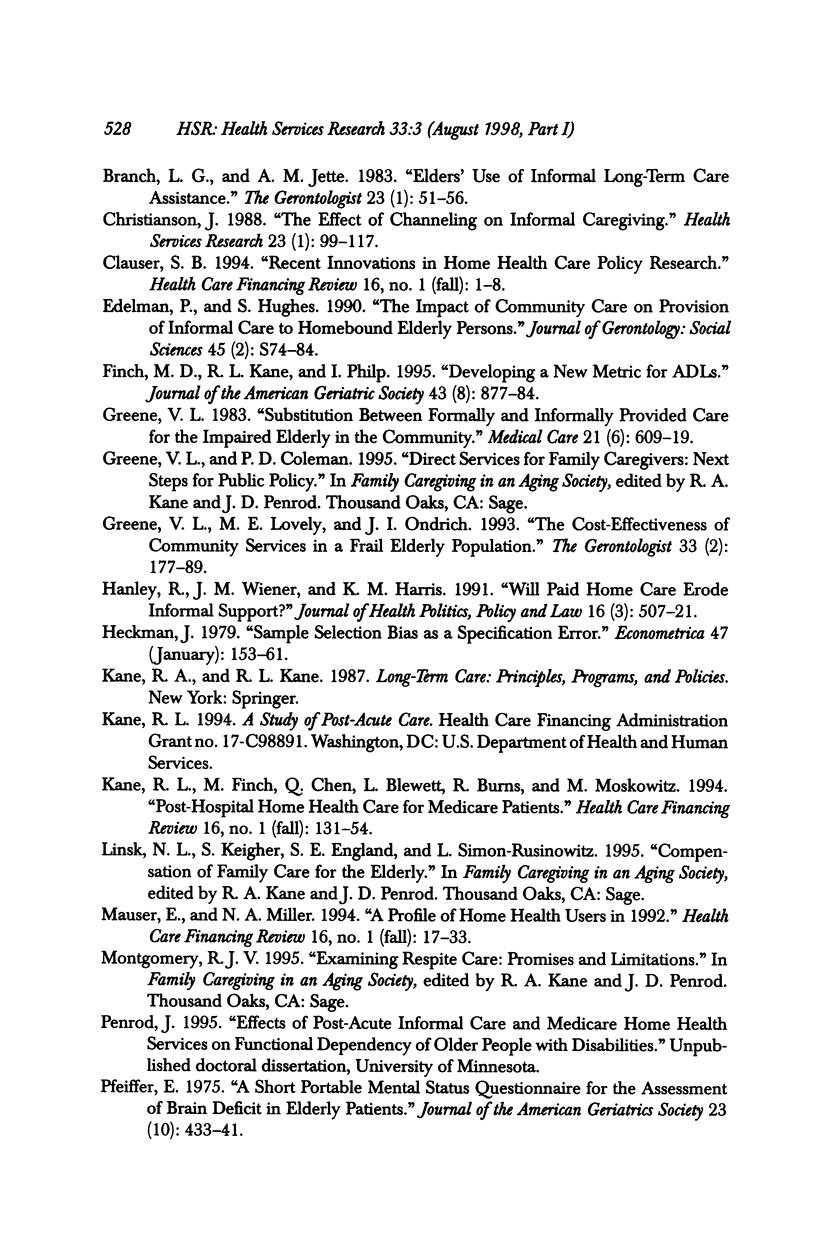
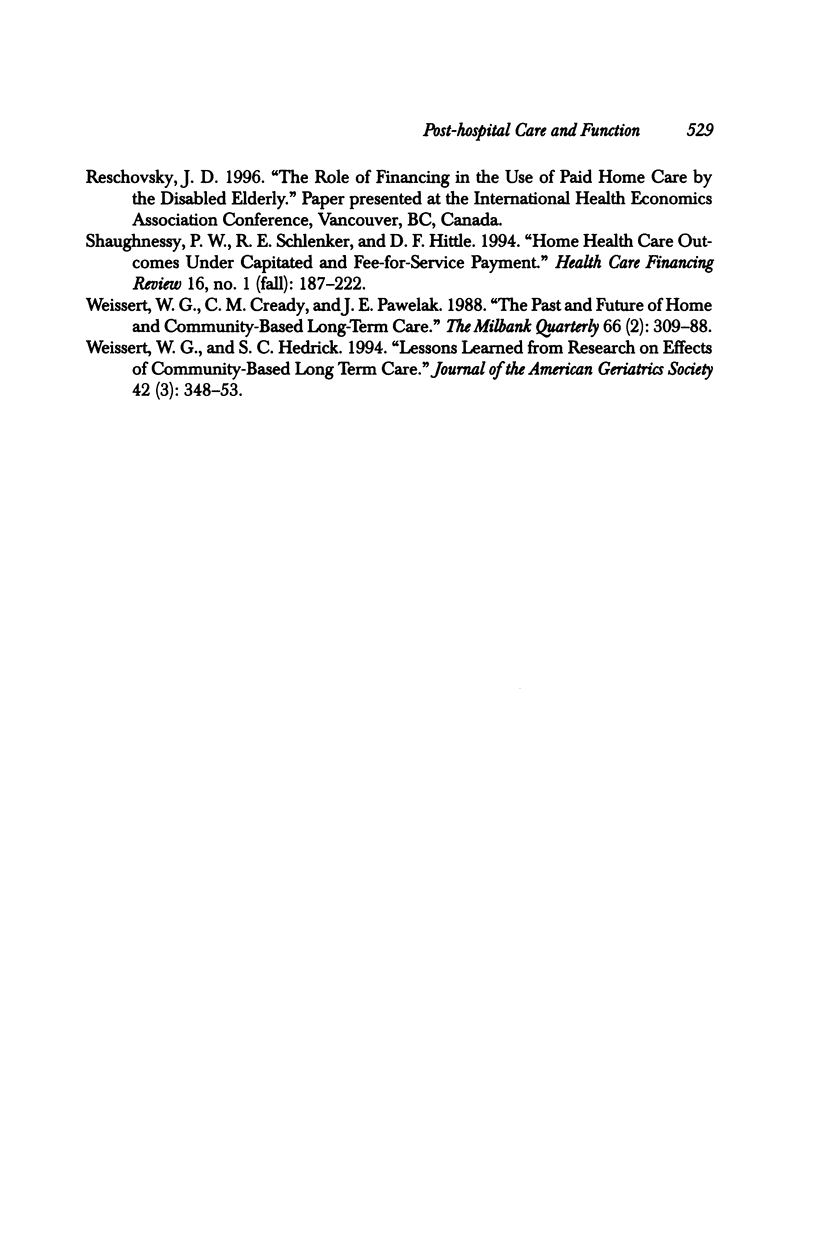
Selected References
These references are in PubMed. This may not be the complete list of references from this article.
- Applebaum R. A., Christianson J. B., Harrigan M., Schore J. The evaluation of the National Long Term Care Demonstration. 9. The effect of channeling on mortality, functioning, and well-being. Health Serv Res. 1988 Apr;23(1):143–159. [PMC free article] [PubMed] [Google Scholar]
- Bass D. M., Noelker L. S. The influence of family caregivers on elder's use of in-home services: an expanded conceptual framework. J Health Soc Behav. 1987 Jun;28(2):184–196. [PubMed] [Google Scholar]
- Branch L. G., Jette A. M. Elders' use of informal long-term care assistance. Gerontologist. 1983 Feb;23(1):51–56. doi: 10.1093/geront/23.1.51. [DOI] [PubMed] [Google Scholar]
- Christianson J. B. The evaluation of the National Long Term Care Demonstration. 6. The effect of channeling on informal caregiving. Health Serv Res. 1988 Apr;23(1):99–117. [PMC free article] [PubMed] [Google Scholar]
- Finch M., Kane R. L., Philp I. Developing a new metric for ADLs. J Am Geriatr Soc. 1995 Aug;43(8):877–884. doi: 10.1111/j.1532-5415.1995.tb05530.x. [DOI] [PubMed] [Google Scholar]
- Greene V. L., Lovely M. E., Ondrich J. I. The cost-effectiveness of community services in a frail elderly population. Gerontologist. 1993 Apr;33(2):177–189. doi: 10.1093/geront/33.2.177. [DOI] [PubMed] [Google Scholar]
- Greene V. L. Substitution between formally and informally provided care for the impaired elderly in the community. Med Care. 1983 Jun;21(6):609–619. doi: 10.1097/00005650-198306000-00003. [DOI] [PubMed] [Google Scholar]
- Hanley R. J., Wiener J. M., Harris K. M. Will paid home care erode informal support? J Health Polit Policy Law. 1991 Fall;16(3):507–521. [PubMed] [Google Scholar]
- Kane R. L., Finch M., Chen Q., Blewett L., Burns R., Moskowitz M. Post-hospital home health care for Medicare patients. Health Care Financ Rev. 1994 Fall;16(1):131–153. [PMC free article] [PubMed] [Google Scholar]
- Mauser E., Miller N. A. A profile of home health users in 1992. Health Care Financ Rev. 1994 Fall;16(1):17–33. [PMC free article] [PubMed] [Google Scholar]
- Pfeiffer E. A short portable mental status questionnaire for the assessment of organic brain deficit in elderly patients. J Am Geriatr Soc. 1975 Oct;23(10):433–441. doi: 10.1111/j.1532-5415.1975.tb00927.x. [DOI] [PubMed] [Google Scholar]
- Shaughnessy P. W., Schlenker R. E., Hittle D. F. Home health care outcomes under capitated and fee-for-service payment. Health Care Financ Rev. 1994 Fall;16(1):187–222. [PMC free article] [PubMed] [Google Scholar]
- Weissert W. G., Cready C. M., Pawelak J. E. The past and future of home- and community-based long-term care. Milbank Q. 1988;66(2):309–388. [PubMed] [Google Scholar]
- Weissert W. G., Hedrick S. C. Lessons learned from research on effects of community-based long-term care. J Am Geriatr Soc. 1994 Mar;42(3):348–353. doi: 10.1111/j.1532-5415.1994.tb01763.x. [DOI] [PubMed] [Google Scholar]


